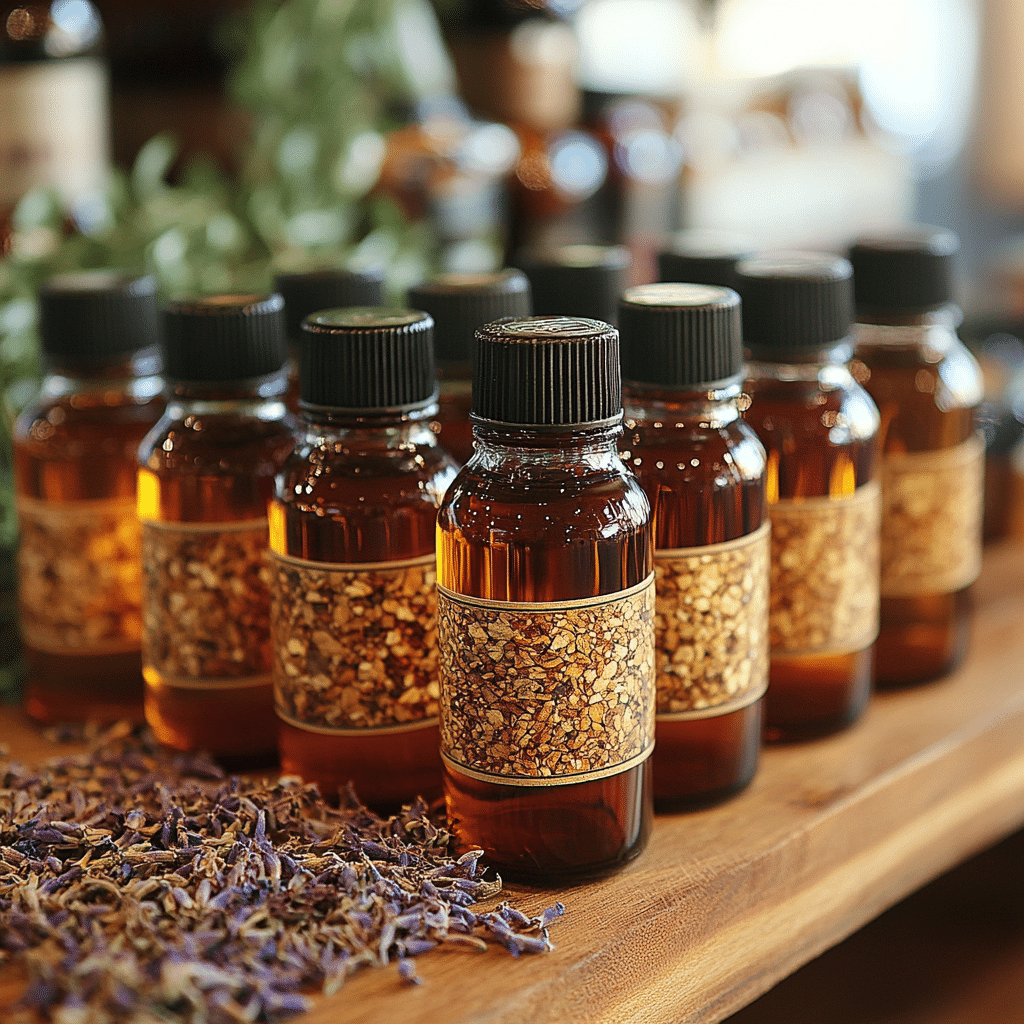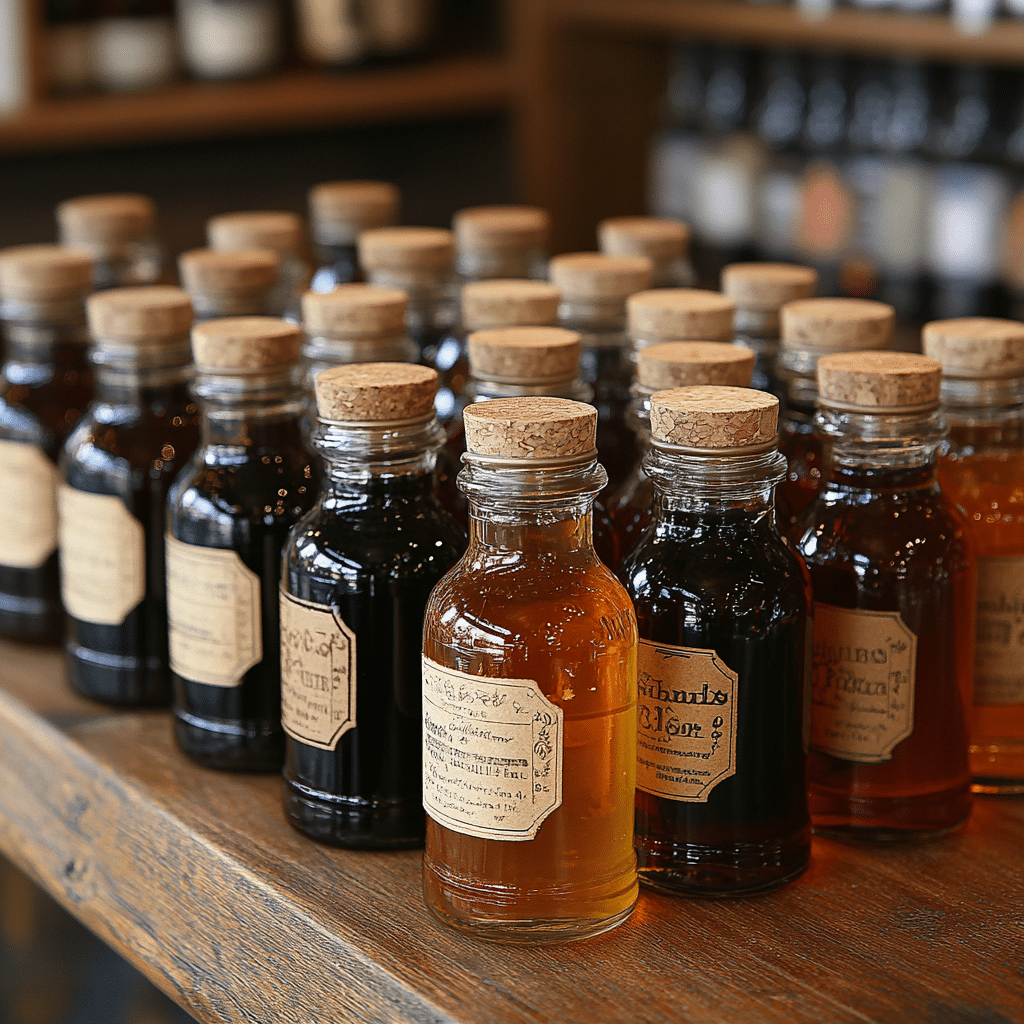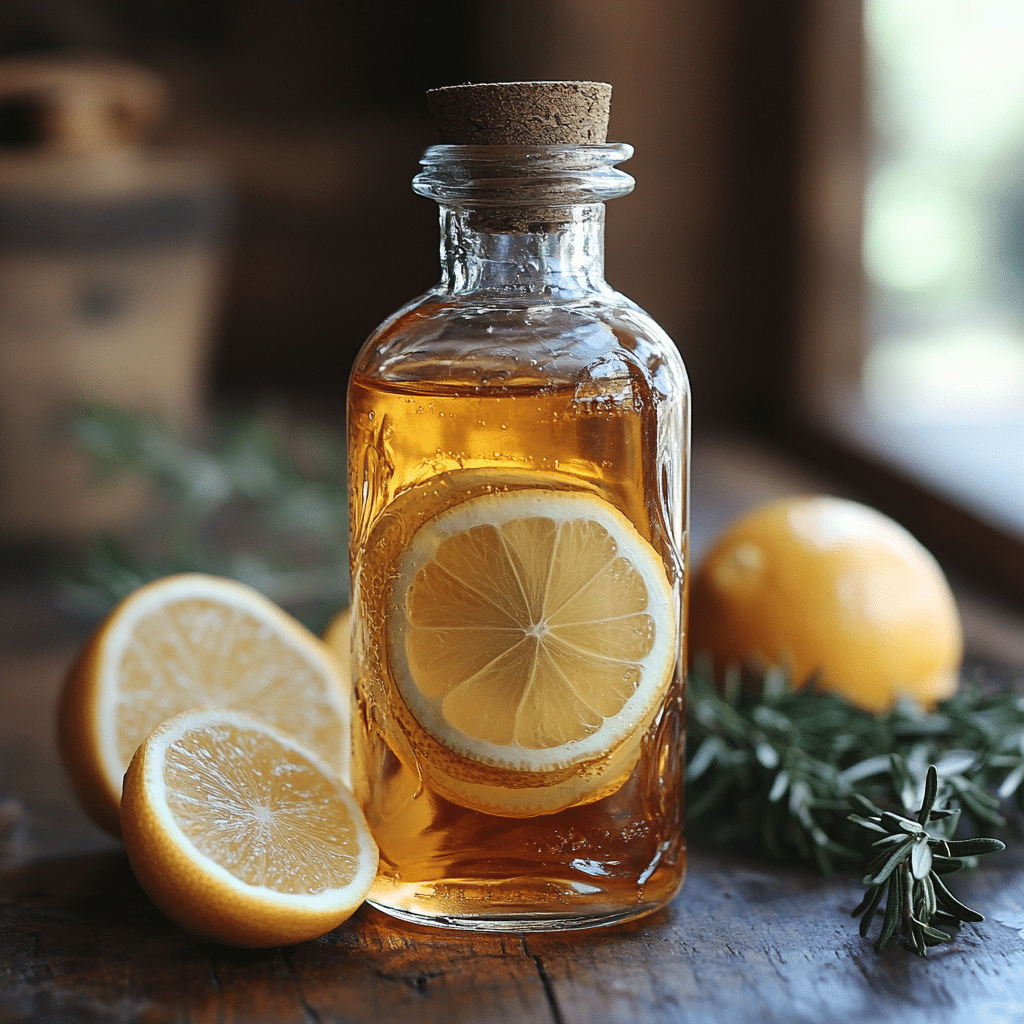Aromatic bitters, with their rich blend of herbs, roots, and spices, are more than just a fancy addition to your cocktail—they’re a remedy with a history. From ancient healing concoctions to modern wellness formulas, these powerful elixirs offer a surprising array of medicinal benefits.
The Historical Roots of Aromatic Bitters
Aromatic bitters have a story that stretches back centuries. Though many now think of bitters as a cocktail ingredient, their original purpose was health-based, catering to ailments ranging from stomach troubles to fevers.
The Origins and Evolution
Ancient Beginnings: Healers from ancient Egypt and Greece often turned to bitter herbs to craft their medicinal potions. These early formulations set the stage for centuries of natural remedies.
16th Century Europe: The tradition of bitters crossed into Europe, where monks and apothecaries further developed these herbal tinctures into trusted medicinal solutions. This period saw aromatic bitters evolve significantly, incorporating a wide variety of regional botanicals.
Modern Resurgence: Today, aromatic bitters are back in the spotlight, thanks to the cocktail renaissance and ongoing interest in natural health remedies. Brands like Angostura and Peychaud’s continue to be popular, not just for their flavor but for their health benefits as well.

Top 7 Medicinal Benefits of Aromatic Bitters
1. Digestive Health: The Primary Beneficiary
Aromatic bitters are perhaps best known for their digestive benefits. When consumed before or after meals, they stimulate the production of digestive enzymes and bile, laying the groundwork for effective digestion.
2. Appetite Regulation
Bitters have a unique role in stimulating the vagus nerve, which signals the stomach to prepare for food, thus regulating appetite.
3. Blood Sugar Control
Aromatic bitters can also help manage blood sugar levels, offering natural support for those dealing with diabetes.
4. Relieving Stress and Anxiety
Many aromatic bitters are formulated with adaptogens, which help the body handle stress and anxiety better.
5. Enhancing Liver Function
The bitter compounds in these tinctures, particularly those with milk thistle and dandelion, aid in liver detoxification processes.
6. Anti-Inflammatory Properties
Certain ingredients in aromatic bitters are known for their strong anti-inflammatory effects, which can help reduce chronic inflammation.
7. Boosting Immune Function
Aromatic bitters, rich in antioxidants and phytochemicals, can bolster the immune system.
| Feature | Details |
| Origins & History | Traditionally used since the early 1800s for medicinal purposes including treating malaria, stomach aches, and other ailments. |
| Common Ingredients | Alcohol, water, sugar, gentian root, herbs, and spices. Angostura bitters, a popular brand, includes cloves and cinnamon. |
| Alcohol Content | Typically between 35% to 45% ABV. A few dashes are used in recipes, making its overall alcohol contribution negligible. |
| Regulatory Status | Considered a food product rather than a beverage, due to strong flavor and small usage amounts. No age restriction for purchase. |
| Usage | Commonly used to flavor beverages and sometimes food. Sold in small bottles with a dasher cap. |
| Angostura Bitters | Produced by House of Angostura in Trinidad and Tobago; known for a distinctive oversized label and yellow cap. |
| Price | Approximate price ranges from $10 to $20 per 118ml (4oz) bottle, depending on the brand and retailer. |
| Medicinal Claims | Historically used for fever, diarrhea, spasms, and malaria prevention, though lacking strong scientific evidence for these uses. |
| Flavor Profile | Spicy and bitter with prominent notes of cloves and cinnamon. |
| Safety | Safe in culinary amounts; large doses may cause nausea and vomiting. |
| Aspect | Benefit |
| Flavor Enhancer | Adds complex bitterness and spice to cocktails and dishes. |
| Digestive Aid | Traditionally believed to aid digestion when used in small amounts. |
| Versatility | Can be used in a variety of drinks and culinary recipes. |
| Accessibility | Available without age restriction, widely sold in grocery stores and online. |
| Type | Key Features |
| Angostura Bitters | Notable for its 44.7% ABV, complex flavor derived from over 40 ingredients steeped in high-proof spirit. |
| Peychaud’s Bitters | Known for a slightly sweeter taste with hints of anise, more commonly used in Sazerac cocktails. |
| Orange Bitters | Combines the concentrated bitterness with citrus flavor, often used in martinis and other light cocktails. |
| Aspect | Details |
| Where to Buy | Grocery stores, liquor stores, online retailers. |
| Shelf Life | Indefinite when stored in a cool, dark place. |
| Proper Storage | Keep away from direct sunlight and tightly sealed to maintain flavor integrity. |
Chefs and Mixologists: Bridging Culinary and Therapeutic Worlds
In the culinary and cocktail scenes, aromatic bitters have seen increased usage, highlighting their crossover potential in flavor enhancement and health promotion.
Case Study: Chef Marcus Samuelsson
Renowned chef Marcus Samuelsson has embraced bitters in his recipes, celebrating their dual role in adding both flavor and health benefits.

Final Thoughts on Aromatic Bitters
The resurgence of aromatic bitters is more than a nod to nostalgic medicinal practices; it’s a testament to their lasting efficacy. With benefits ranging from digestive health to immune boosting, aromatic bitters capture the wisdom of centuries-old remedies and place them firmly within contemporary health discussions. When you next add a few dashes to your drink or dish, remember: you’re drawing on a rich legacy of natural wellness. For more fascinating insights, don’t miss articles like Something The Lord made and Lugares de Interés Turístico.
For a deep dive into related topics, consider discovering Bobby Shriver’s contributions through this Baltimore Examiner article, or explore the picturesque village of Appletreewick here ( Aromatic bitters may be more than just a splash in your glass; they represent a bridge between the past and present, flavor and health.
Aromatic Bitters’ Surprising Medicinal Benefits
Historical Uses of Aromatic Bitters
Did you know aromatic bitters have been around for centuries, lending their flavors and benefits to many cultures? Ancient Egyptians used them to boost digestion, believing the combination of herbs and alcohol could cure numerous ills. Interestingly, some of these blends featured intricate designs reminiscent of Islamic artwork, merging aesthetics with function.
Modern Medical Applications
Fast forward to today, aromatic bitters continue to serve surprising medicinal roles. They have gained popularity in alternative medicine circles for their potential to support digestion, liver function, and even the immune system. Some doctors point to these bitters as a helpful supplement for patients seeking non-pharmaceutical remedies. For those dealing with chronic pain or mobility issues post-arthrodesis, the benefits of bitters are being noted in some arthrodesis status updates.
A Surge in Popularity
The renewed interest in bitters isn’t just a passing fad. Many people are turning to these little potions as part of holistic healthcare routines. Emergency centers, like the Urgent Care in Grafton, have started recommending these natural options for minor issues when appropriate, offering a bridge between conventional and alternative medicine. In financial news, aromatic bitters have even been mentioned alongside changes in I Bond interest rates, reflecting broader trends in health and wellness spending.
From ancient rituals to modern healthcare, aromatic bitters prove themselves as versatile allies. So, the next time you sip a cocktail enhanced with bitters, remember you’re partaking in a tradition with deep roots and contemporary relevance.

What do aromatic bitters do?
Aromatic bitters have been used since the early 1800s for their perceived medicinal benefits and can add complexity and balance to cocktails and other beverages. They provide a unique blend of bitter flavors from herbs, spices, and other botanicals.
Can you drink straight aromatic bitters?
You can drink straight aromatic bitters, but it’s not recommended due to their strong, concentrated flavor. However, some folks might take a swig if they’re feeling adventurous, although their intended use is in small dashes to flavor drinks.
Do you need to be 21 to buy aromatic bitters?
You don’t need to be 21 to buy aromatic bitters in most places. Despite having a high alcohol content, they’re considered a food product, not a beverage, because only tiny amounts are used at a time.
Is bitters an alcoholic drink?
Bitters are technically alcoholic, with an alcohol content usually between 35% and 45% ABV. However, because of their potent flavor and the small quantities typically used, they aren’t classified the same as standard alcoholic drinks.
What happens to your body when you drink bitters?
When you drink bitters, their intense flavor can stimulate your digestive system and might provide some of the traditional medicinal benefits believed to come from the herbs and spices they contain. In large quantities, they can cause nausea and vomiting.
Do bitters cleanse the liver?
There’s no strong scientific evidence to support the idea that bitters cleanse the liver. Traditional beliefs held that bitters provided medicinal benefits, but modern science doesn’t back those claims to the same extent.
Can you get buzzed from bitters?
A few dashes of bitters in your drink won’t get you buzzed, but if you were to drink an entire bottle, it would be akin to downing nearly three shots of whiskey. The high alcohol content will certainly have an effect if consumed in large amounts.
Can bitters give you a buzz?
Bitters can give you a buzz if consumed in large quantities, similar to other alcoholic beverages. The high alcohol content would affect you if you drank enough, although that’s not their intended use.
Are bitters bad for your stomach?
Bitters are typically not bad for your stomach when used as intended in small amounts. The herbs and spices can actually aid digestion for some people, but consuming large doses can lead to stomach upset.
Why aren t bitters illegal?
Bitters aren’t illegal because they’re used in such small quantities that their alcohol content is negligible. They fall under the category of food products rather than alcoholic beverages, making their sale and use more broadly accepted.
Does bitters help with a hangover?
Bitters might help with a hangover for some people by aiding digestion and settling an upset stomach. However, there’s no solid scientific evidence to support this, and the best cure for a hangover is usually time and hydration.
What do you mix aromatic bitters with?
Aromatic bitters can be mixed with a variety of cocktails, such as an Old Fashioned or Manhattan. They’re also used in non-alcoholic drinks like soda or sparkling water to add a complex, bitter flavor.
Can sober people have bitters?
Sober people can consume bitters without issue. Since only small amounts are used, the alcohol content in the final beverage is usually very low, making it suitable for most people.
What the heck are bitters?
Bitters are concentrated herbal preparations made from various herbs, spices, and botanicals, steeped in alcohol. They’re used to flavor beverages and sometimes food, adding a distinctive bitter taste.
Do bitters go bad?
Bitters don’t actually go bad, but their flavor can degrade over time, especially if not stored properly. Keep them in a cool, dark place to maintain their potency.
What do bitters do for the gut?
Bitters can aid digestion by stimulating the production of digestive enzymes. Some folks find that a small amount of bitters before or after a meal helps with bloating and indigestion.
Why add bitters to a drink?
Bitters are added to drinks to balance flavors and add complexity. Their strong, bitter notes can complement sweet, sour, and even savory elements in cocktails, making the drink more interesting.
Do bitters help with anxiety?
There isn’t strong scientific evidence to suggest that bitters help with anxiety. While some people might find the ritual of making a drink with bitters calming, it’s not a substitute for proper anxiety treatment.
What are the healing properties of bitters?
The healing properties of bitters are largely based on traditional uses. People have used them for digestive issues, fever, and other ailments. However, these claims aren’t strongly supported by modern science.



